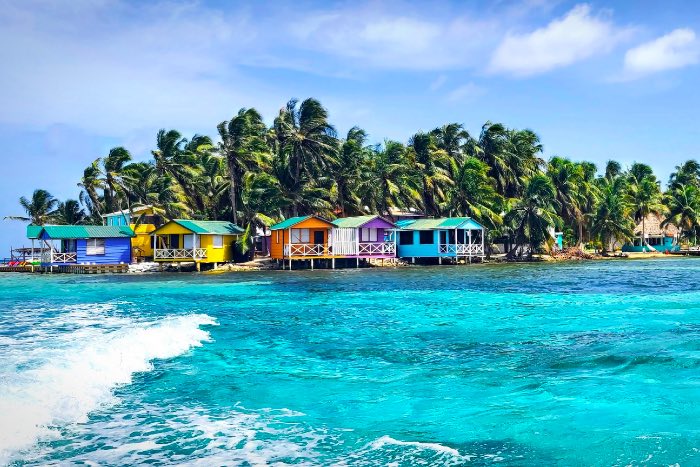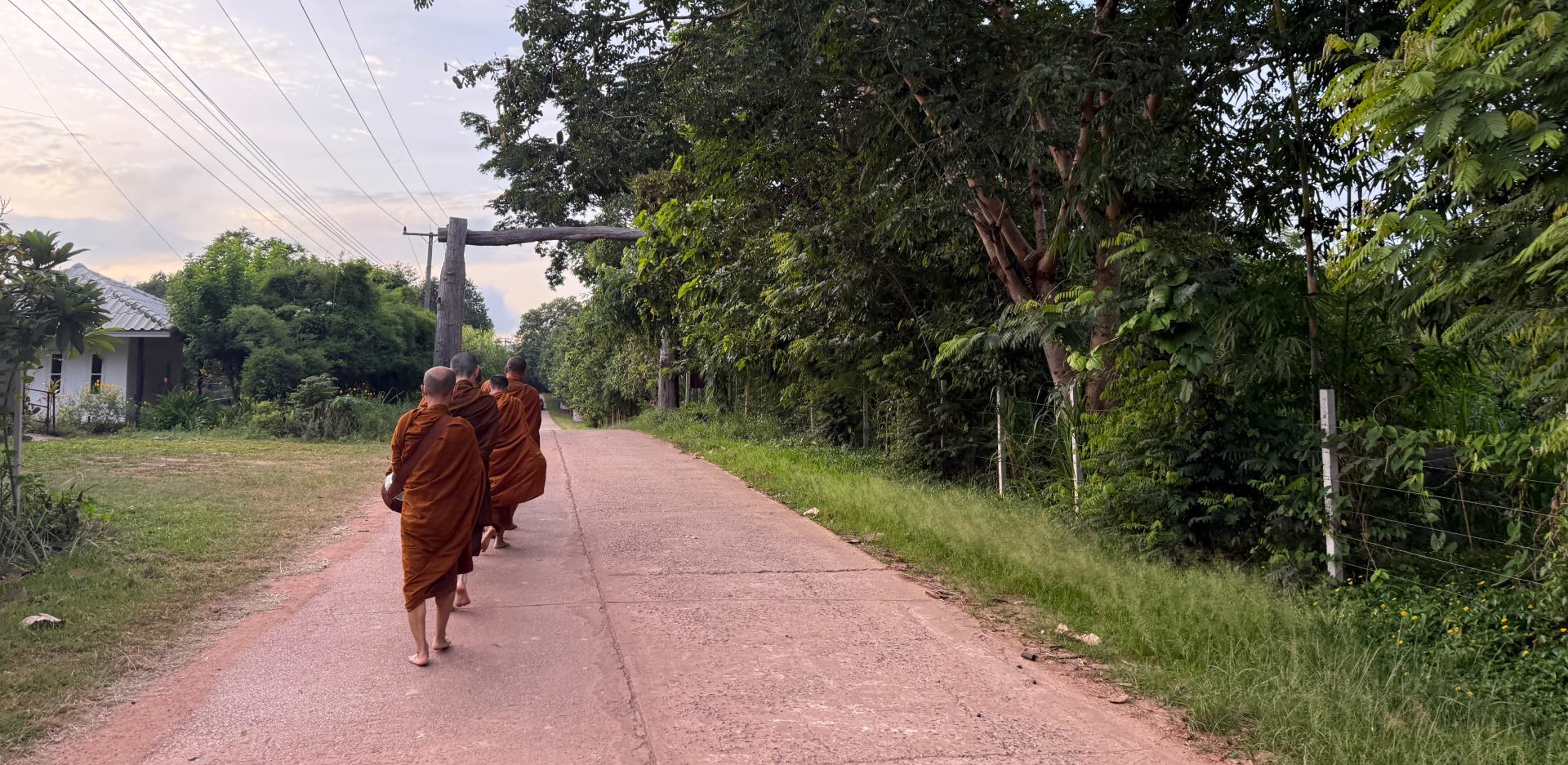
Thailand: Buddhism & Conservation
Study emerging models in conservation and education. Understand nature through Buddhist philosophy.
Course Overview
Learning in the diverse landscapes of Thailand, a country where ancient rainforests and rich cultural traditions intertwine. This course focuses on Buddhism through the lens of ecosystem conservation and how we can use mindfulness practices in personal and professional settings. We will focus on how ecological, cultural, social, and spiritual values humans hold for nature are interwoven. Students will have opportunities to learn directly from extended times in nature and from monks and other local experts on-site at a beautiful forest monastery. The monks and nuns of this particular forest monastery are known for their social activism for environmental concerns, such as clean water sources for local communities.
This course was co-created by Dragonfly founders, Lynne and Chris Myers, in partnership with Thai partners from Mahidol University, the ThaiHealth Promotion Foundation, and JitArsa Bank, an organization focused on volunteering as a means of promoting love, kindness, and happiness.
A typical day on this EE course includes exploration and hiking in the local environment, instructor and student-led discussions of key course topics, presentations, engagement with local community experts, and time for inquiry investigations and journal writing. Prior to and following the field experience in Thailand, students will complete coursework via Canvas, Miami University's learning management system, as they apply experiences at home.
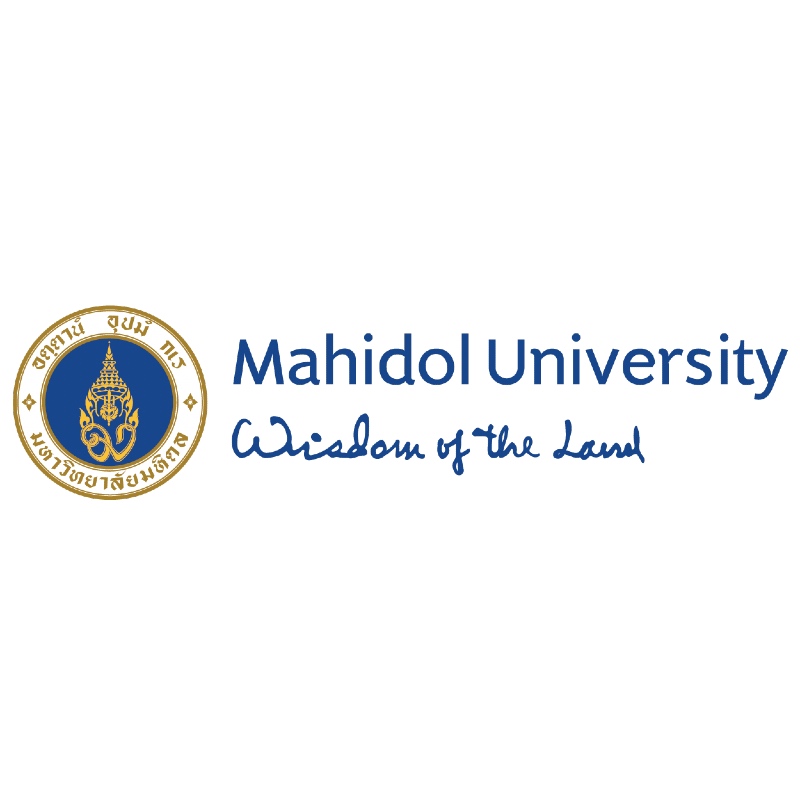 *** If you're interested in Thailand: Buddhism and Conservation for Summer 2026, let us know by completing this short form. Note: This is not the EE application/course request form. Visit our Apply webpage for application instructions for the GFP or to take an Earth Expeditions stand-alone course. Current Dragonfly students' summer requests should be submitted using the form sent via email.
*** If you're interested in Thailand: Buddhism and Conservation for Summer 2026, let us know by completing this short form. Note: This is not the EE application/course request form. Visit our Apply webpage for application instructions for the GFP or to take an Earth Expeditions stand-alone course. Current Dragonfly students' summer requests should be submitted using the form sent via email.
| Course Components | Details |
|---|---|
| In-Person Travel Dates |
June 29 - July 8, 2026 Arrive at least one day before and depart on last day of course. |
| Full Course Dates |
April to August online. |
| Course-Specific Themes |
-Experiencing contemplative education and Buddhism in action. -Hornbill and other species-based reseach methods. -Learning mindfulness practices in nature-based setings. -Opportunities for personal inquiry investigations and personal growth through journaling. |
| Eligibility |
This course is open to any interested current master's students or can be taken as a standalone course. An undergraduate degree is required. *Miami U. undergraduates with Graduate School permission may also apply. |
| Physical Requirements |
1-2 longer hikes and amble opportunities for walking meditation during course; hot and humid conditions. |
| Lodging |
Shared hotel rooms, national park cabins shared by 2 to 4 per room with shared bathroom; small cabins at monastery shared by 2+ people sleeping mats on floor (en suite bathrooms). |
| Course Credits |
5 master's graduate credits or 7 CEUs (continuing education credits) can be earned. |
| Course Costs* |
There are two options to take this course: 1) Earn 5 graduate credits: $1600 program fee + $2275 for 5 credits tuition ($455 x 5 credits) + $175 Miami’s global programs fee = $4050 2) Earn 7 CEUs (Continuing Education Credits): $1600 + $400 instructional cost = $2000 All participants cover their own transport to Bangkok, Thailand (airport code BKK). |
*Includes meals, water (extra snacks and drinks not included), lodging, activities (optional activities not included), course transportation, and park entrance fees. For additional information, go to our Program Costs page.
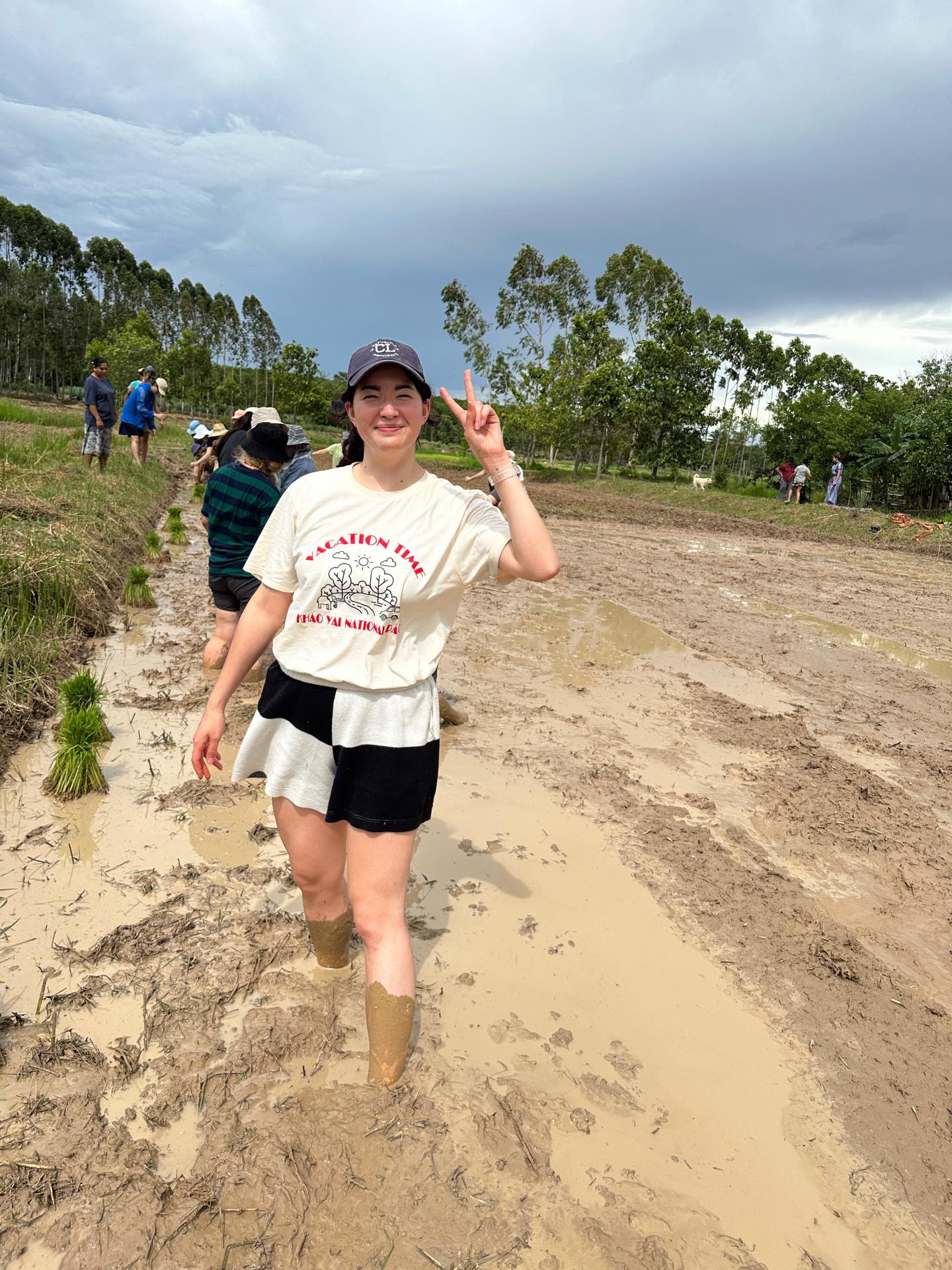
Thailand
Planned Sites
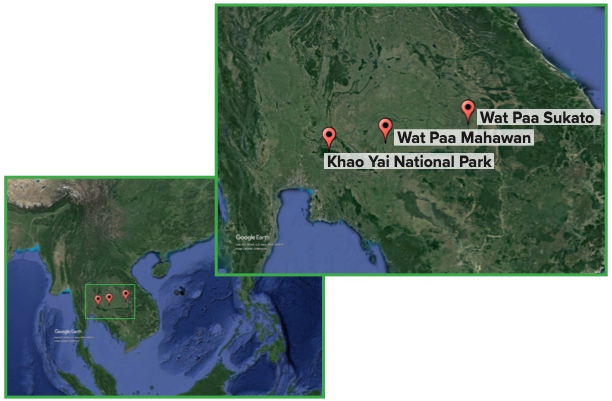 Khao Yai National Park
Khao Yai National Park
Located approximately 200 kilometers northeast of Bangkok, Khao Yai is Thailand’s oldest national park. The 2,100 square kilometer park encompasses a variety of vegetation zones including evergreen rainforest and mixed deciduous forest. Approximately 200 to 300 wild elephants share the park with tigers, gibbons, barking deer, civets, and sun bears. Khao Yai’s rich forests are home to a large population of hornbills including the great hornbill, one of the most conspicuous of the hornbill clan with its bright yellow “horn” or casque on top of its head. There are numerous hiking trails and several wildlife observation towers, including one near a natural salt lick that entices elephants, barking deer, and gaur into the open.
Various forest wats (temples)
Discuss Buddhist views on nature, ecology, and conservation with scientists, educators, and “ecology monks” active in conservation efforts in Thailand. The group will spend several days at Buddhist monasteries, where students will be instructed in meditation practice and participate in discussions on contemplative education.
Wat Paa Sukato
Wat Paa Sukato is a forest monastery in a remote village in northeast Thailand’s Chaiyaphum province. The monastery is an outstanding example of the interwoven strands of conservation, Buddhism, and community. The monks designated the forest surrounding their monastery as sacred, prohibiting logging and the killing of wild animals. They fostered a reverence for nature among the local community and recruited the villagers to help prevent forest fires. The monks also helped local children form an environmental education club called Dek Rak Nok (Children Love Birds) with the goal to protect the local bird population. Monks also lead an annual week-long “Green Walk” around the watershed forest to promote conservation awareness.
Wat Paa Mahawan
Wat Paa Mahawan is a forest monastery in the mountains of Chaiyaphum. Monks of Wat Paa Mahawan work with the local community to nurture and conserve the forests surrounding the temple. The forest is an important watershed area, and the community conservation efforts help ensure the health of vital river systems upon which the local people, the forests, and the wildlife depend. The monks have also begun a biodiversity monitoring program to collect data on forest recovery and cultural uses of wild species. The monks hope to use the data to create further conservation awareness in the local communities.
(Course locations are subject to change.)
Thailand Course Photos
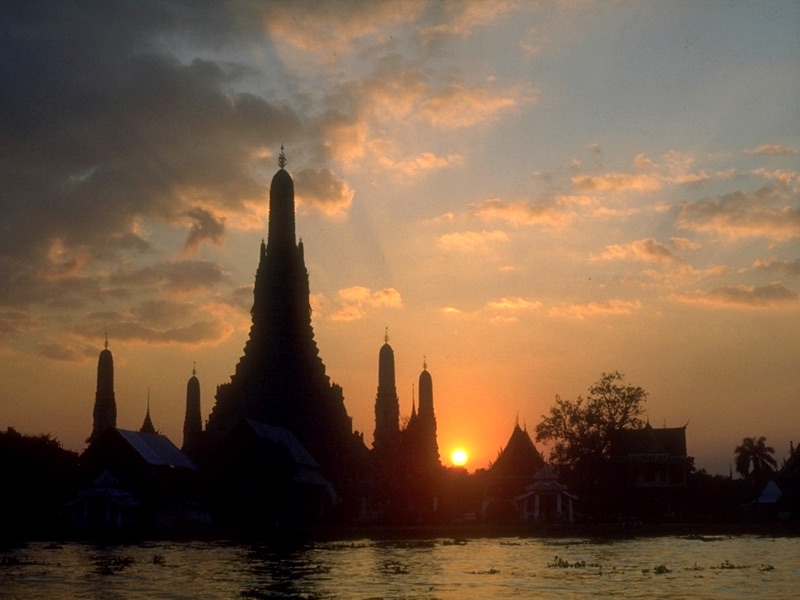
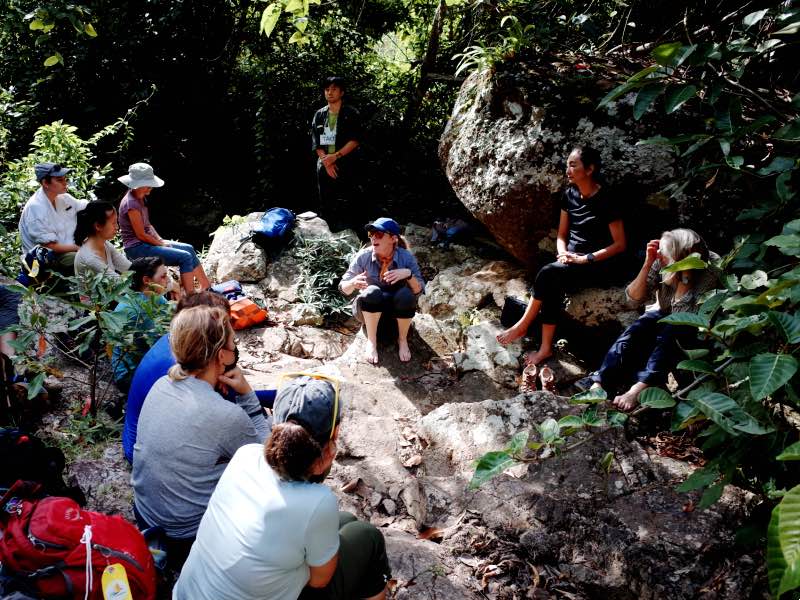
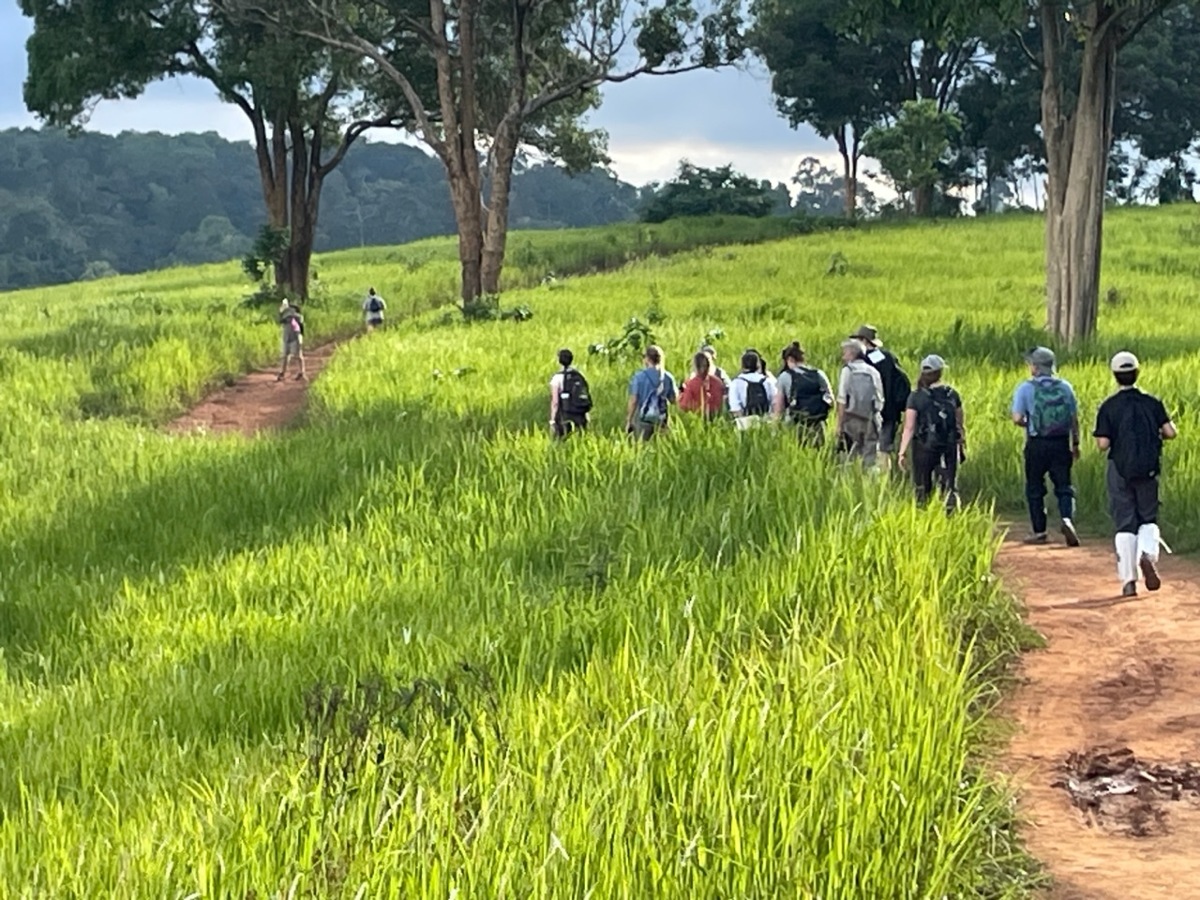
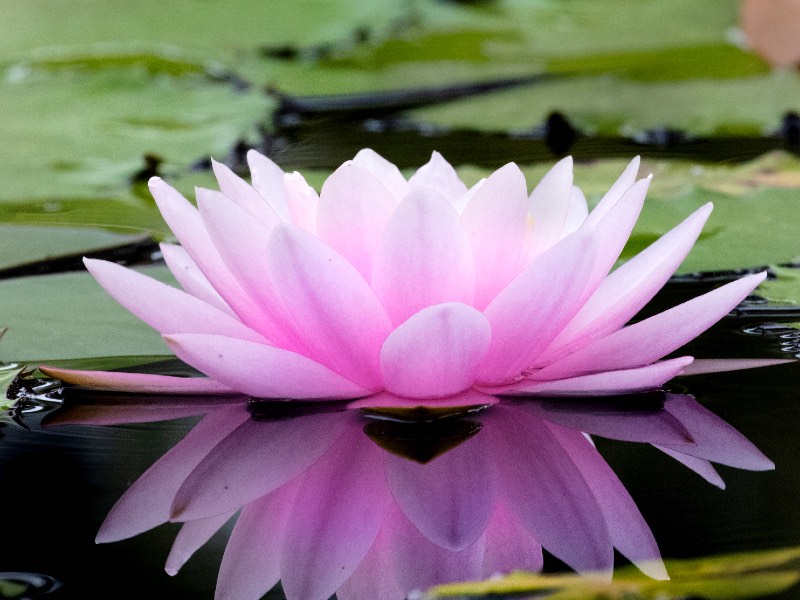
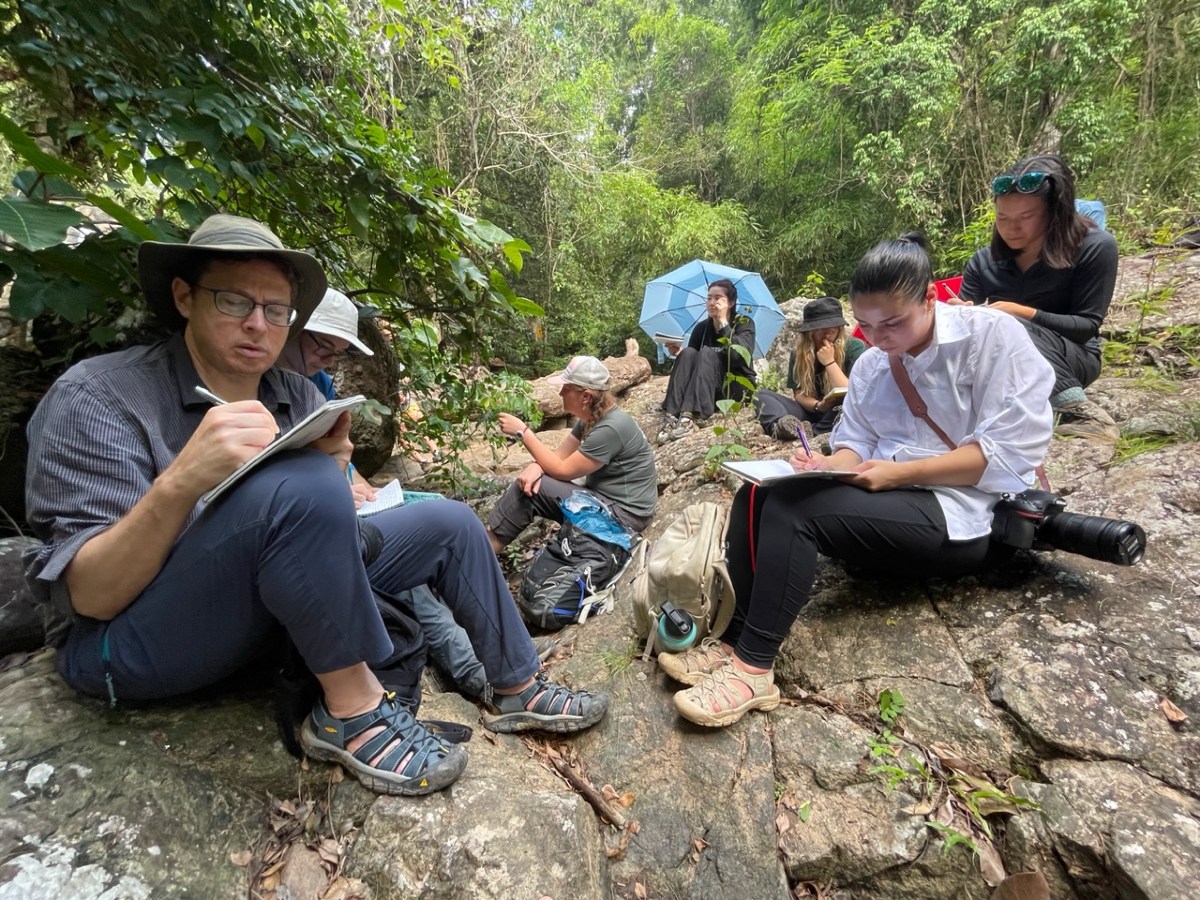
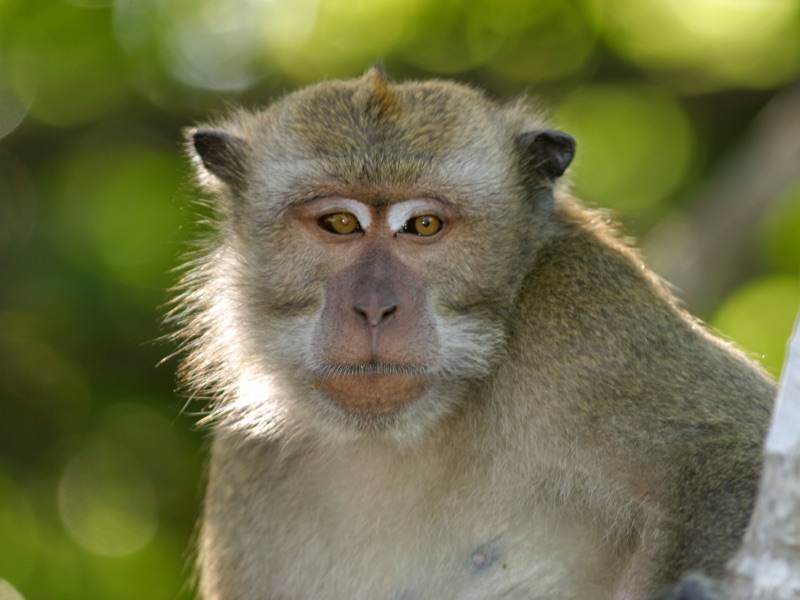
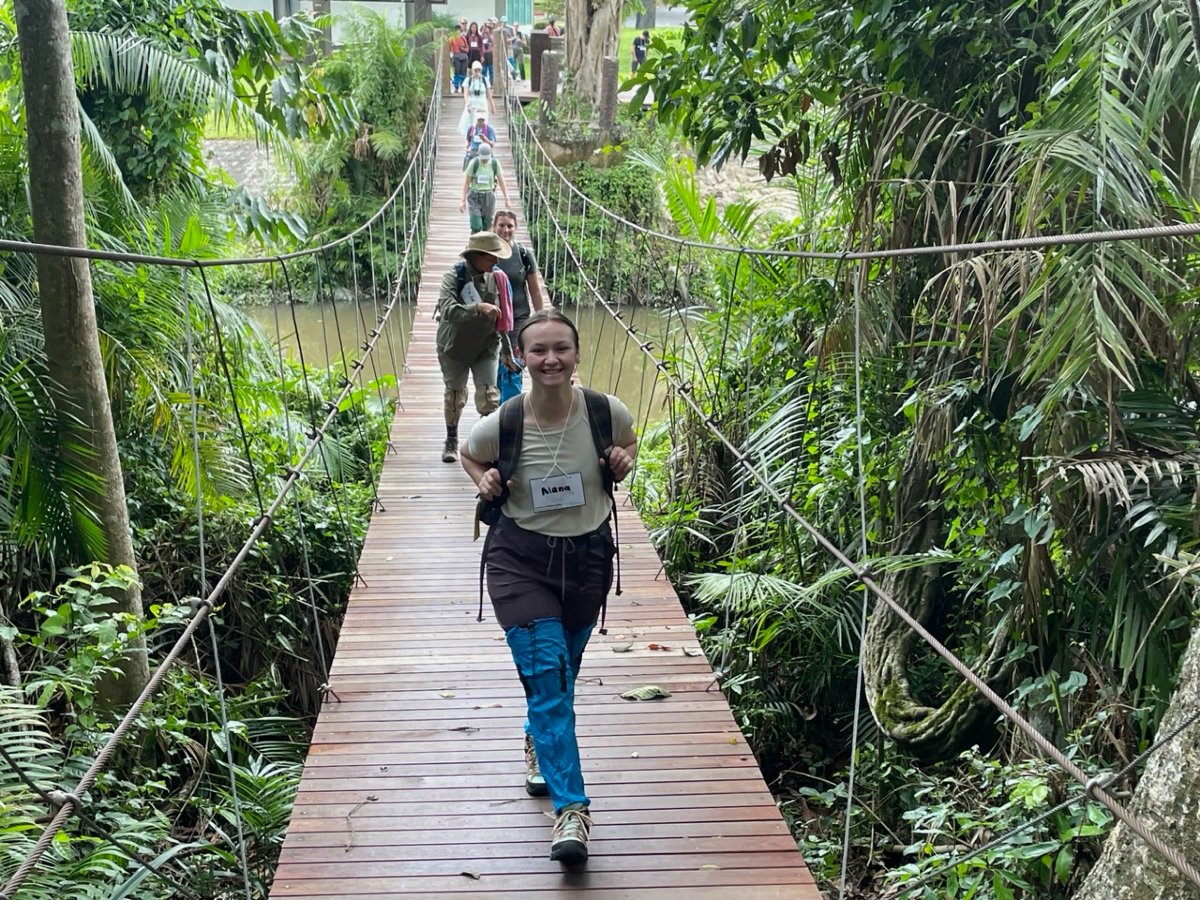
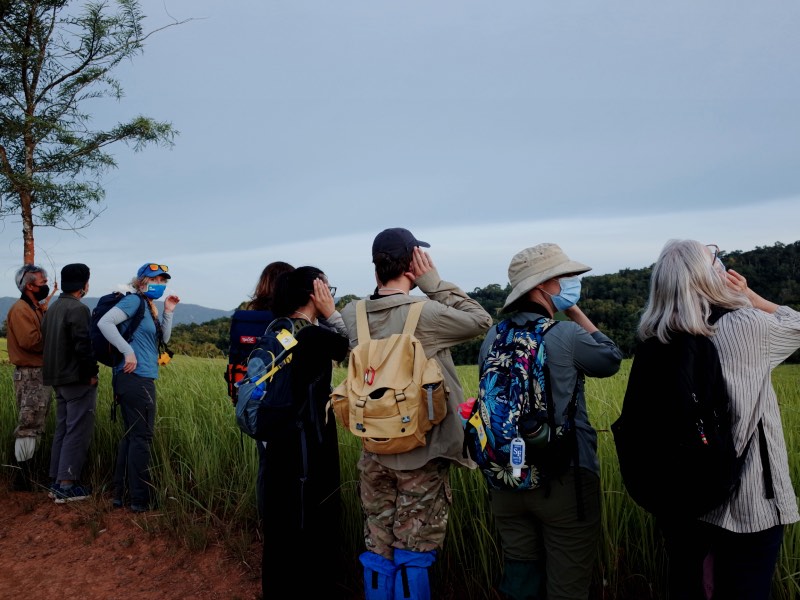
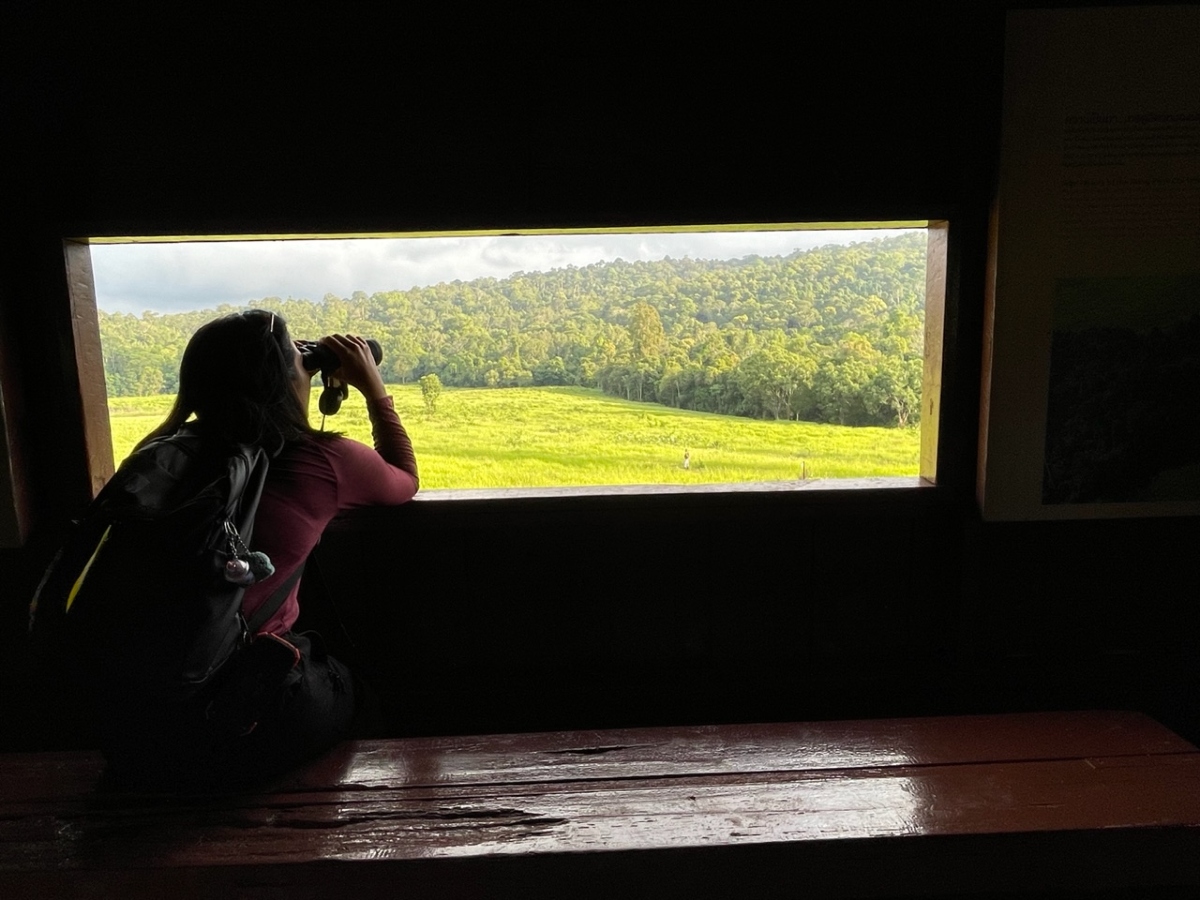
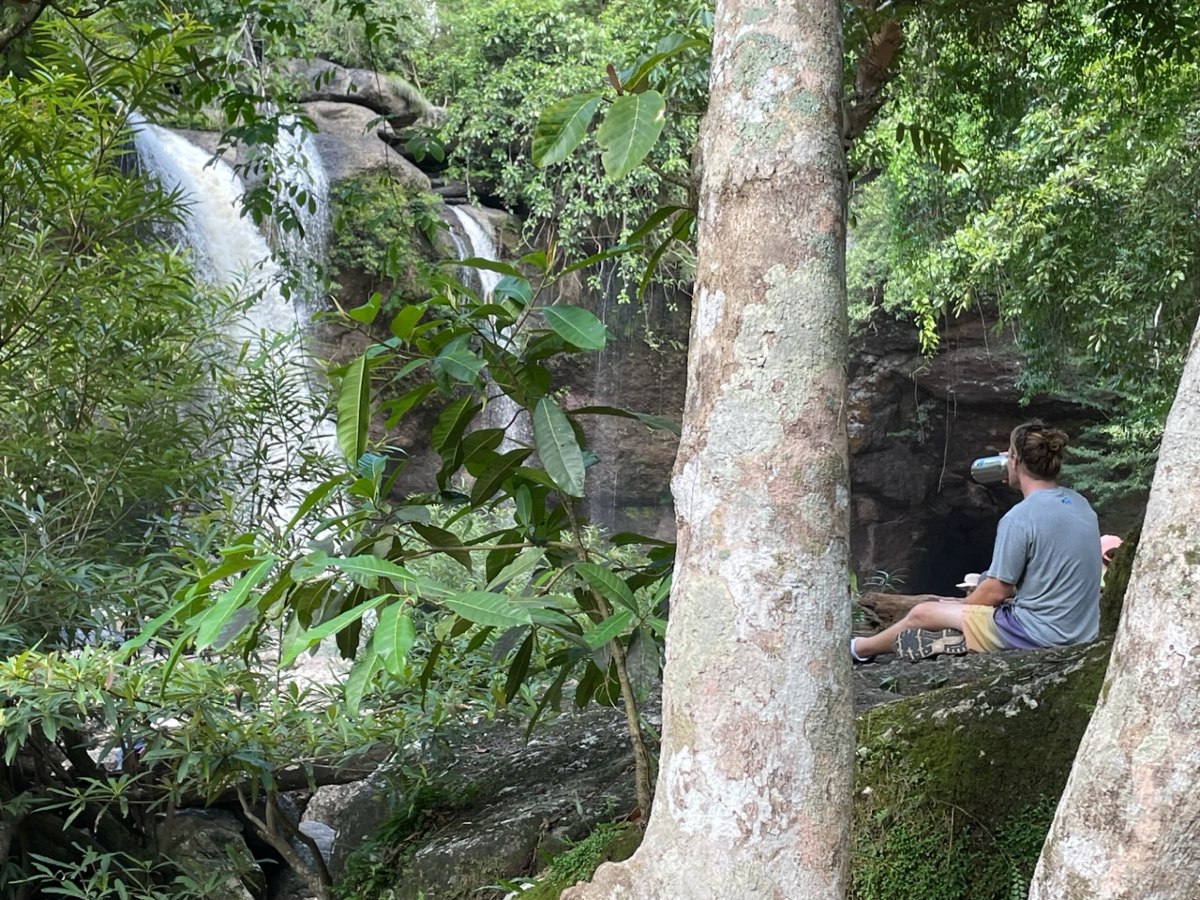
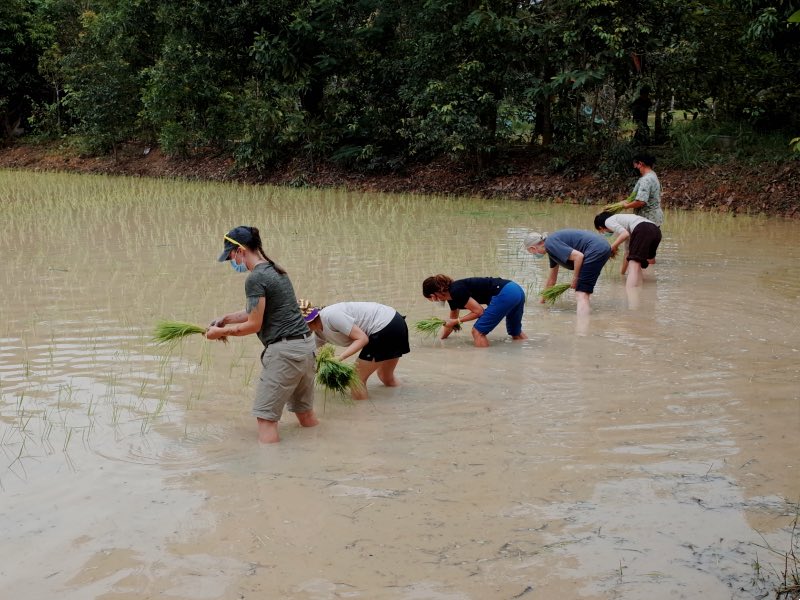
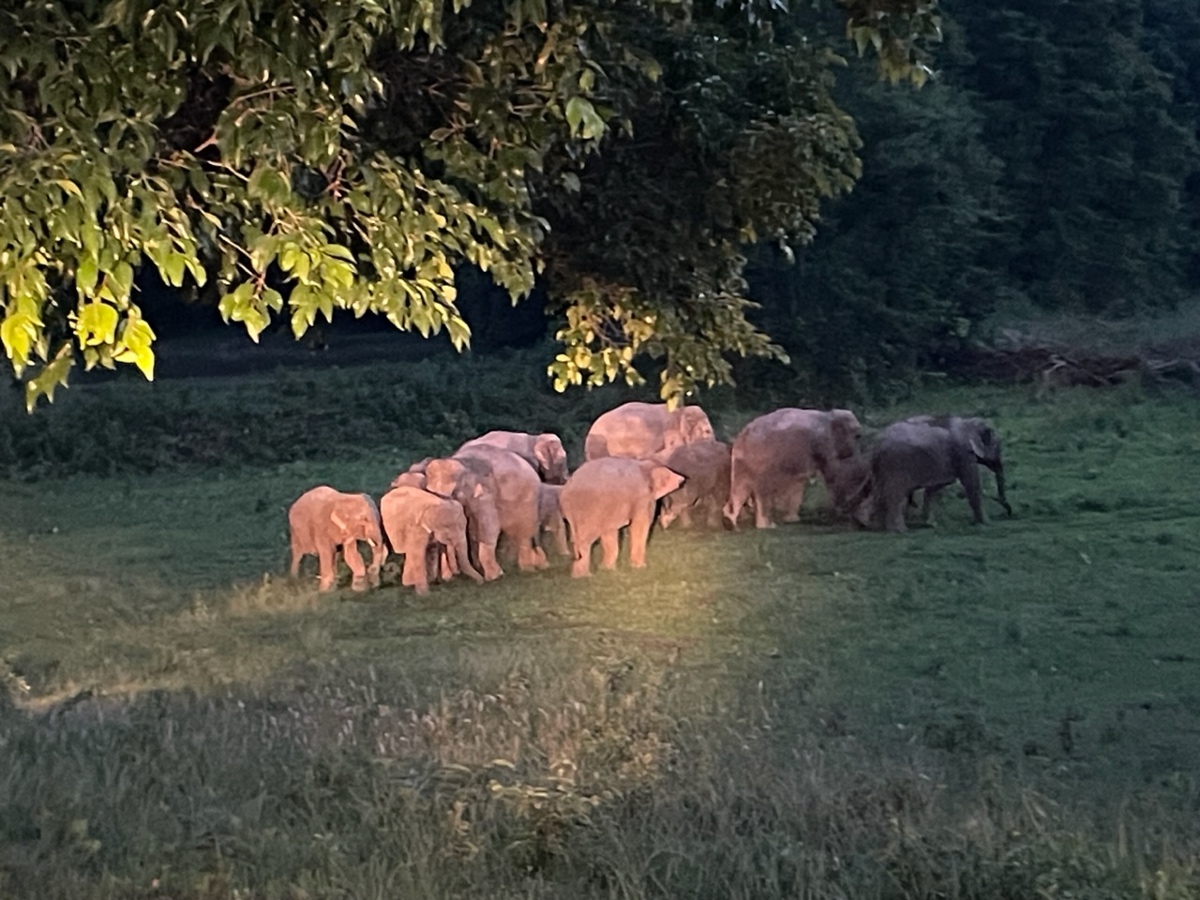
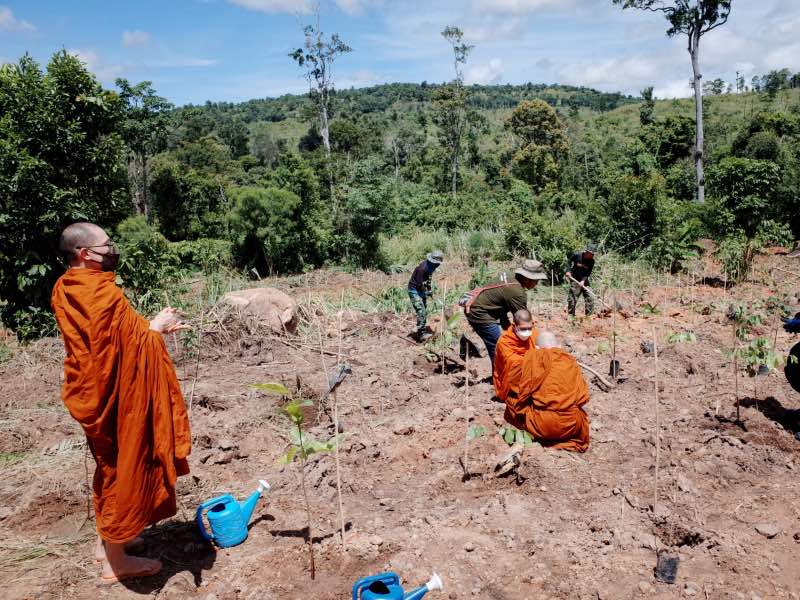
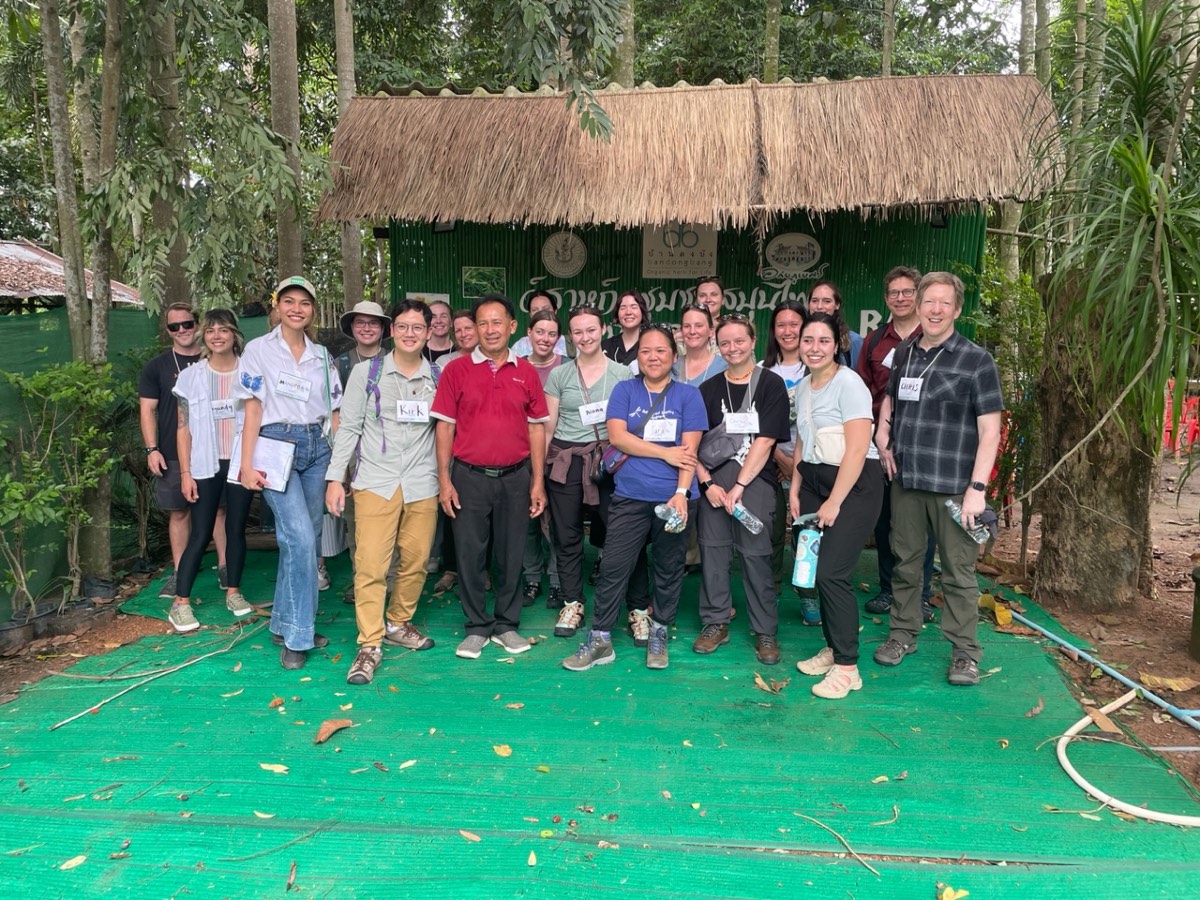
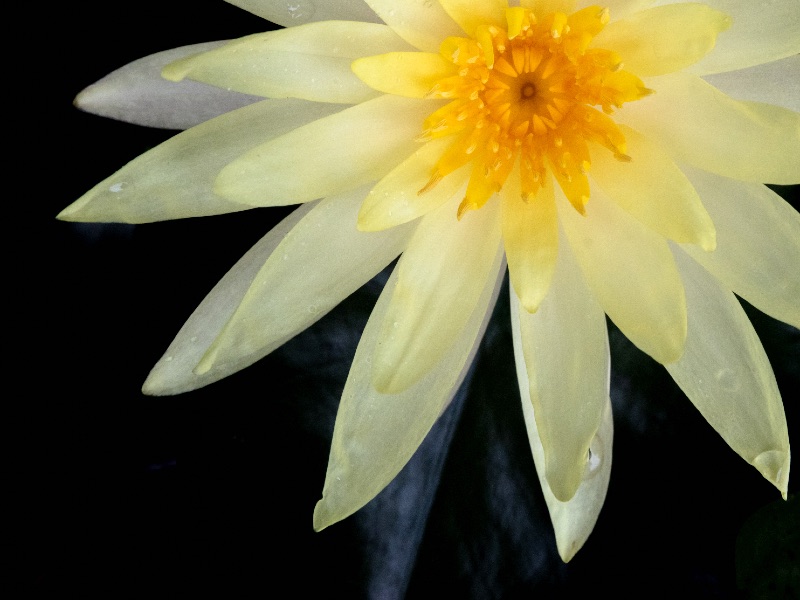
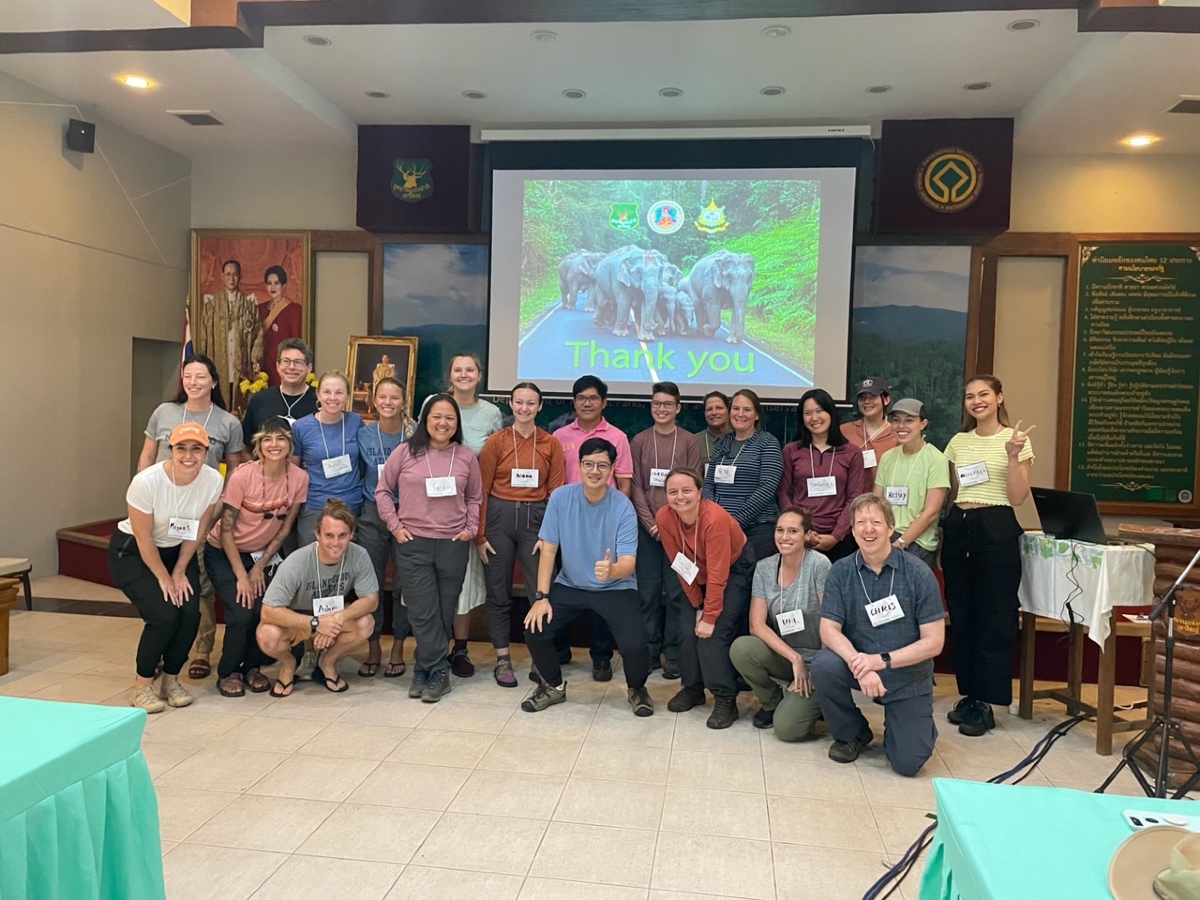
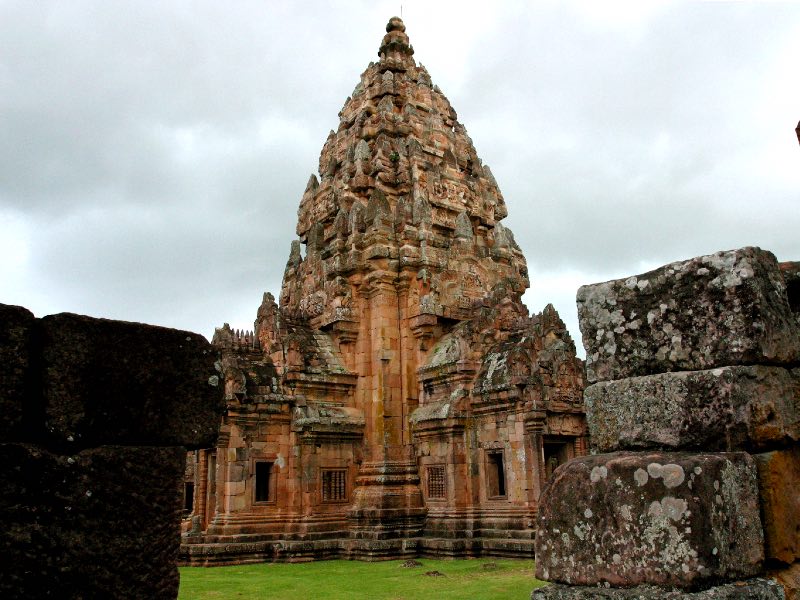
Inside Earth Expeditions
Recorded September 17, 2025, covering Namibia, Borneo, and Thailand.
Want to know more about Dragonfly's global+web-based Earth Expeditions courses? Please view a recording from one of our 2025-26 Inside Earth Expeditions sessions, where we share the inside scoop on our EE course locations, partners, and activities. These sessions are perfect for current AIP and GFP students, prospective GFP students, and those interested in taking an EE as an individual course. Each session was led by an experienced member of our instructional team.
Questions?
Check out another EE!
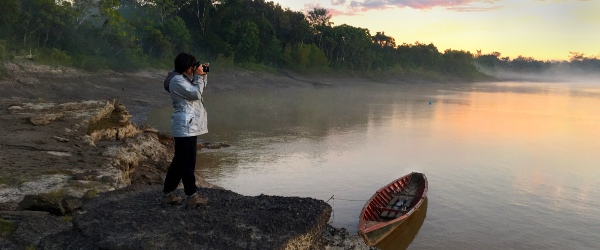
Amazon: Avian & Tropical Ecology

Australia: Great Barrier Reef
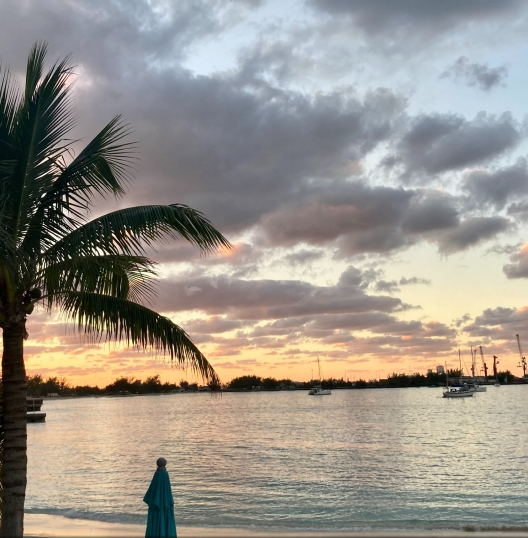
The Bahamas: Cultivating Conservation Networks
Snorkel in biodiverse marine protected areas, explore unique national parks, and gain an understanding of community-driven initiatives by talking directly with local experts at the forefront of conservation.
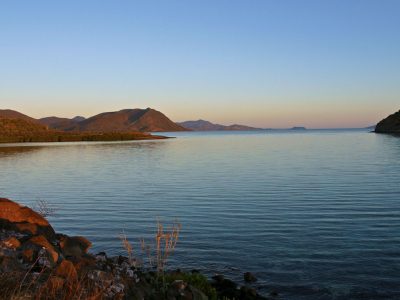
Baja: Field Methods

Belize: Approaches to Environmental Stewardship
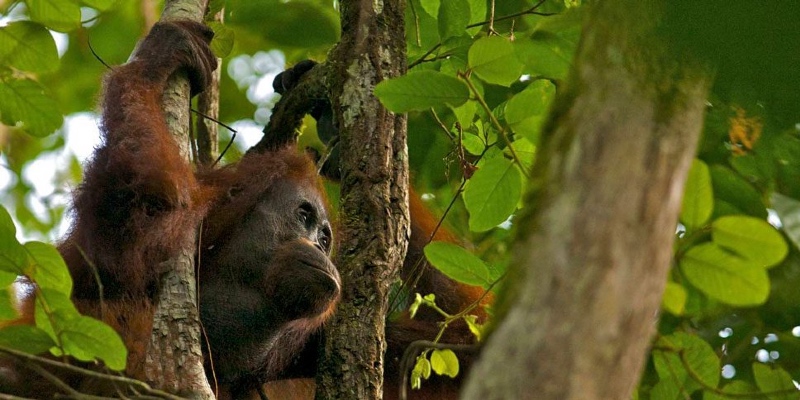
Borneo: Primate Conservation
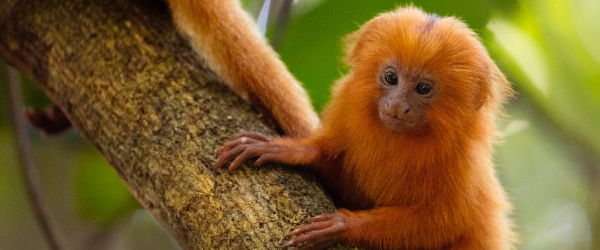
Brazil: Saving Golden Lion Tamarins
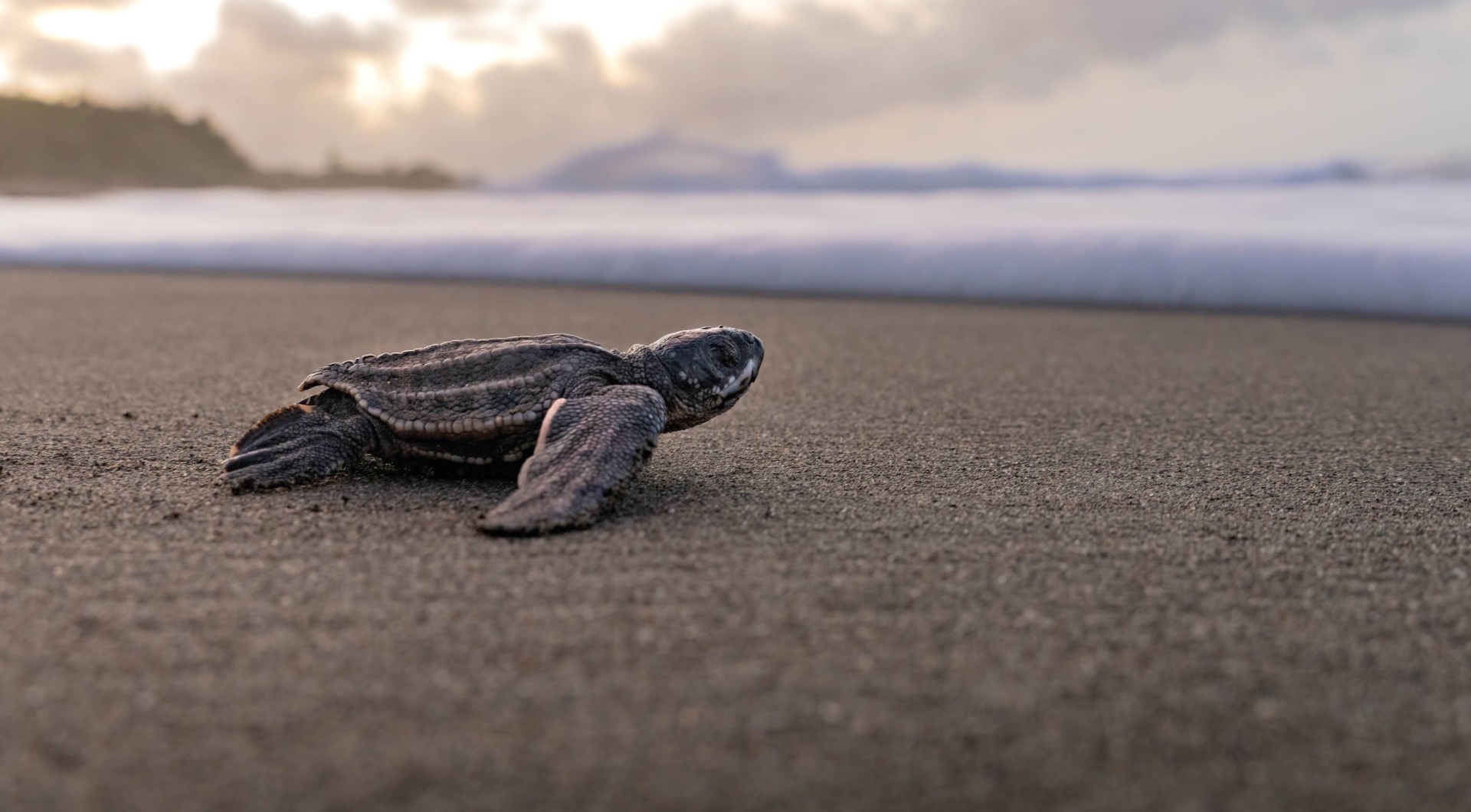
Costa Rica: Ecology & Ecotourism
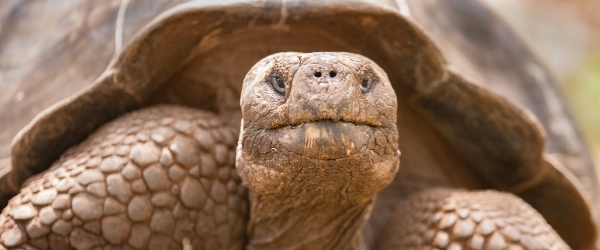
Galápagos: Islands of Change
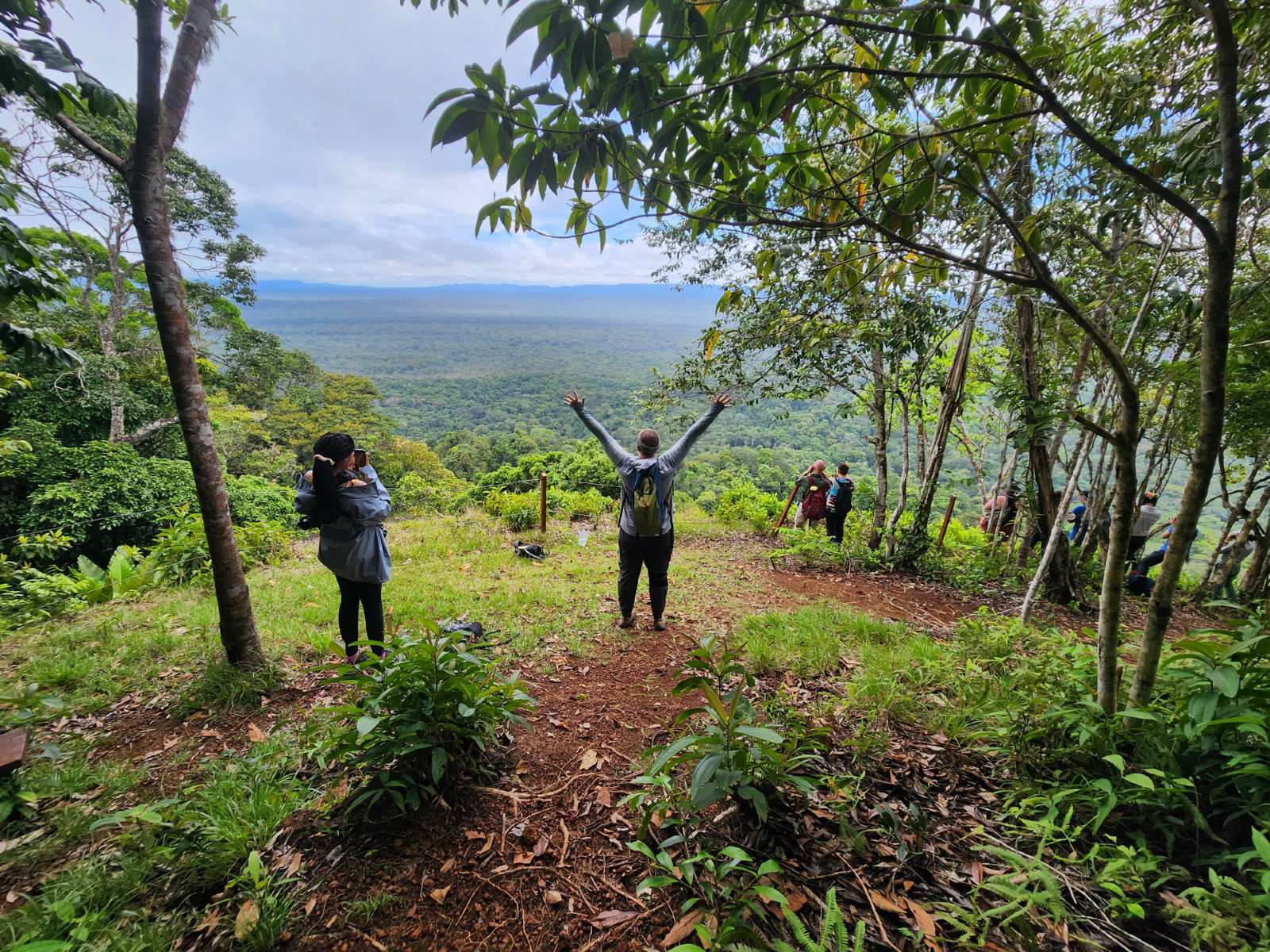
Guyana: Local Wisdom & Conservation
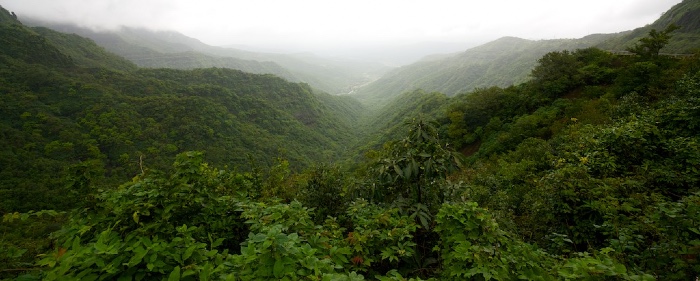
India: Species, Deities & Communities
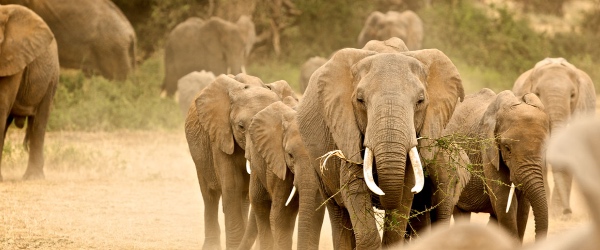
Kenya: Wildlife & People in Integrated Landscapes
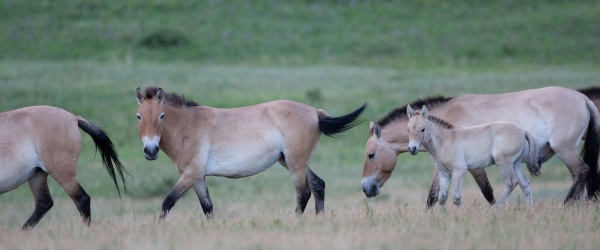
Mongolia: Steppe Ecology & Civic Media

Namibia: Great Cat Conservation
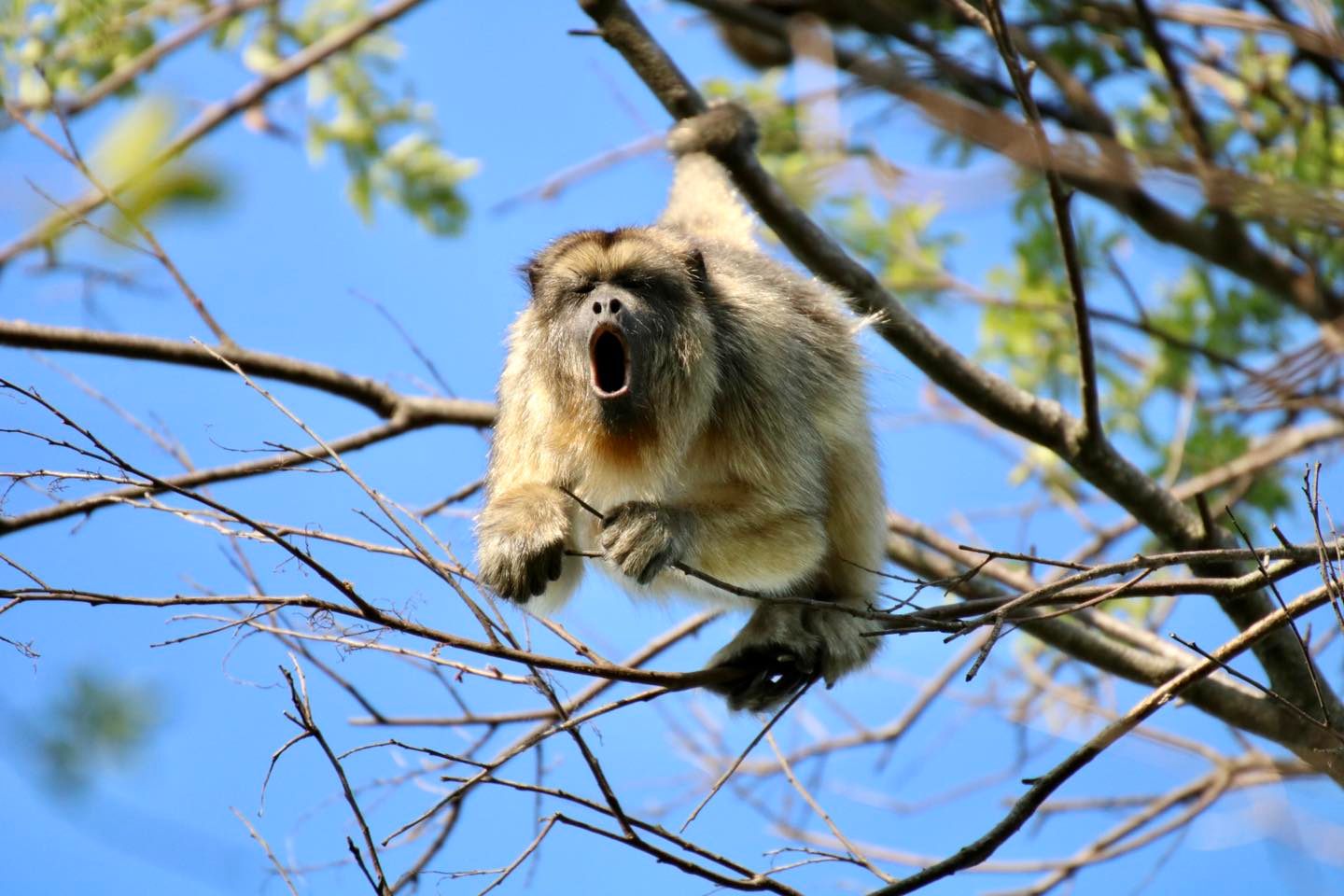
Paraguay: Eco-Leadership
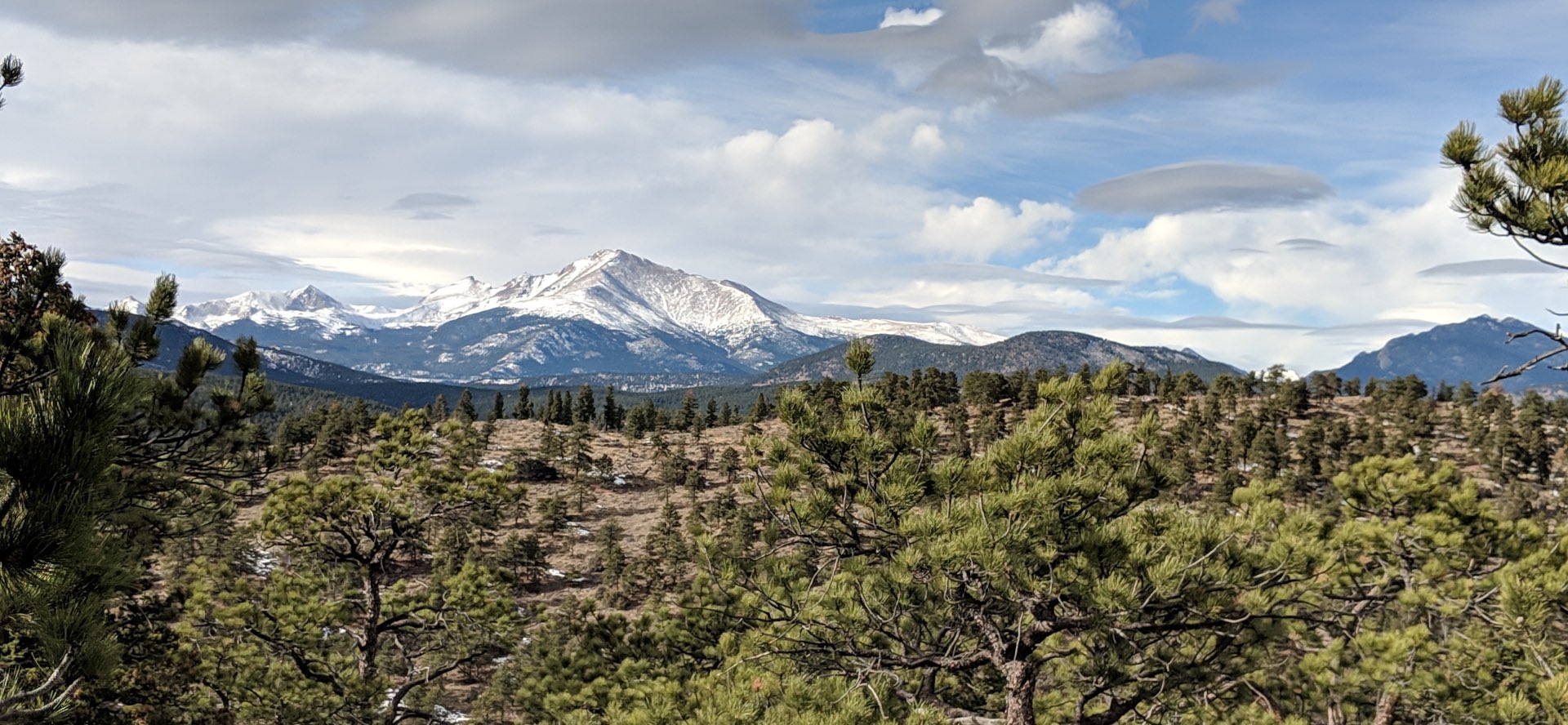
Rocky Mountains: Fire, Resilience & Urban Wildlands

Thailand: Buddhism & Conservation
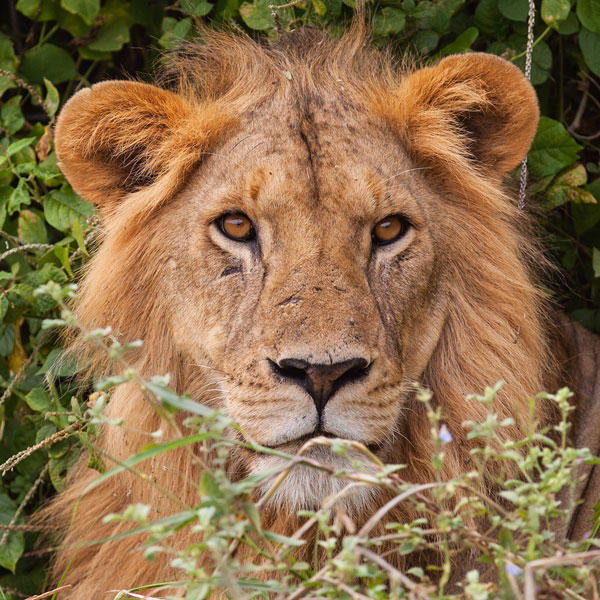
FAQs
